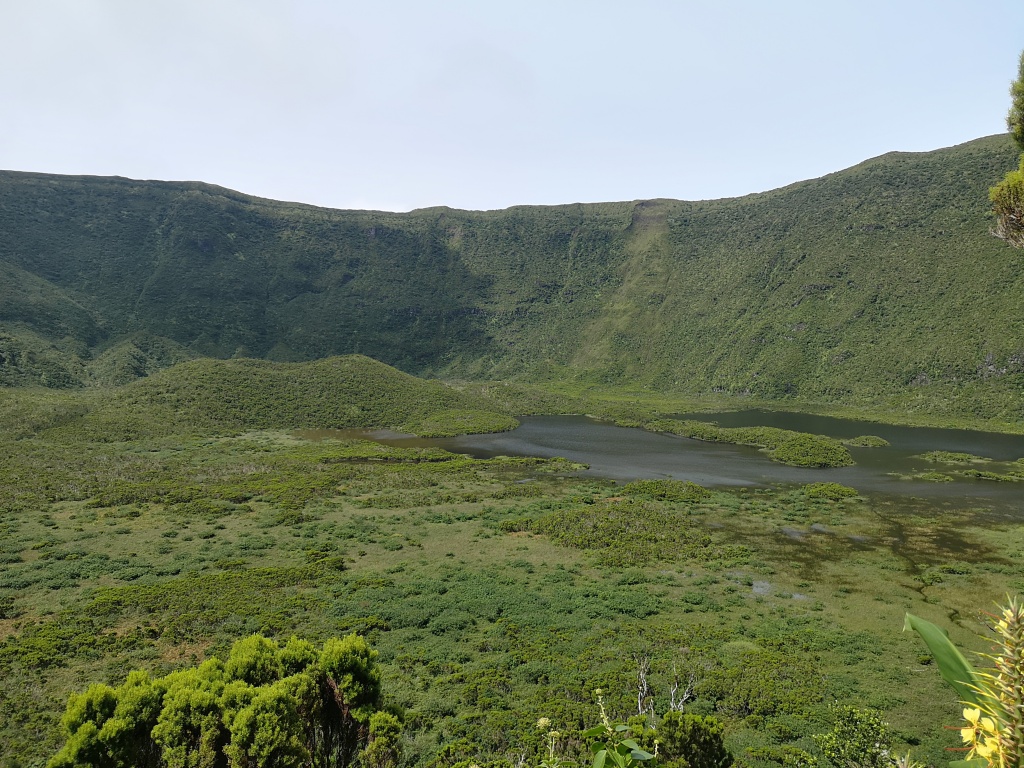Island Biogeography and Macroecology (Second Edition – 2023)

• Lecturer(s) or Responsable(s): Paulo A. V. Borges & Rosalina Gabriel (Prof. Univ Azores, IBBC- Azorean Biodiversity Group, cE3c)
• Department Responsible: Azorean Biodiversity Group – ABG (cE3c)
• Date: July 17th to July 28th, 2023
• Deadline for Applications: April 7th, 2023
• Duration: Two weeks
• Schedule: 9h-12h30 and 14h00-17h30 Monday to Friday
• Nº (min, max) Students: 30 students (5 places reserved for 1st year cE3c PhD students; 6 places reserved for USA students, The Summer School will run with a minimum of 21 students)
• Location: Angra do Heroísmo, Terceira Island, in the Azores archipelago, PORTUGAL
• Target audience: Ph.D. students in Ecology, Geography, Environmental Sciences or related areas, and Postdocs working in Island Biogeography and Macroecology
• Requirements: Research interests in insular ecosystems, basic knowledge of R
During the two-week course the students will follow all the steps of a scientific project, from developing research questions, objectives and hypotheses, to the selection of methods, including the collection, analysis and discussion of data/results. There will also be ample opportunity to discuss student’s own data and case studies.
The course is focused on the large-scale patterns of taxonomic, phylogenetic and functional diversity.
• Paulo A. V. Borges
• Rosalina Gabriel
• Rui Bento Elias
• Isabel R. Amorim
• Mário Boieiro
• Gabor Pozsgai
Week 1
• François Rigal (University of Pau, France)
• Luís Borda-de-Água (CIBIO – Porto, Portugal)
• Robert J. Whittaker (University of Oxford, England, U.K.)
• Simone Fattorini (University of L’Aquila, Italy)
Week 2
• Ana Santos (Universidad Autónoma de Madrid, Spain)
• Brent Emerson (Island Ecology and Evolution Res. Group-IPNA-CSIC, Canary Islands, Spain)
• Joaquin Hortal (Natural History Museum in Madrid (MNCN), Spain)
• Pedro Cardoso (Natural History Museum, University of Helsinki, Finland)
• Rosemary Gillespie (University of California, Berkeley, USA)
(1) Ecological/evolutionary theories developed from studies on islands, and their applications in other research areas;
(2) Processes that occur during and after island colonization, that shape island communities;
(3) Island community-assembly rules;
(4) Island evolutionary processes;
(5) Applications of island biogeography to conservation biology;
(6) Islands within islands – caves/lava tubes, kipukas;
(7) Island paleobiogeography.
(1) Quantification of alpha, beta and gamma diversity;
(2) Quantification of rarity and species abundance distribution;
(3) Estimating diversity from incomplete sampling;
(4) Standardize sampling protocols for island fauna and flora surveys and monitoring;
(5) Biological traits in ecology and conservation;
(6) Network ecology modelling;
(7) Population genetics/genomics;
(8) Phylogenetic analysis and phylogeography;
(9) Phylogenetic and functional diversity (richness, dispersion, evenness);
(10) Partitioning taxonomic, phylogenetic and functional beta diversity.
Other PhD/MSc students: 100€
Senior researchers (Post-Docs)/academic: 300€
The fee includes: lectures and lecture notes, field excursions, coffee breaks and a welcome reception to faculty and students.
Additional Fees for ECTS: An additional cost of 300€ for students requiring ECTS Declaration
Accommodation: Hotel Monte Brasil will cost 48,00€ per day (Single) and 65,00€ per day (Double room: 32,50 Euros per day per student)
The Grants include:
a) Portuguese Students – include flight expenses (Economy Class from Lisboa or Porto to Terceira Island) and 14 nights at a 3-star hotel (or equivalent) in a double room in Angra do Heroísmo (Terceira Island).
b) There will be also additional FLAD scholarships available for USA students, which include flight expenses (Economy Class from Boston to Terceira Island) and 14 nights at a 3-star hotel (or equivalent) in a double room in Angra do Heroísmo (Terceira Island).
At the end of the program, participants receive a Certificate of Completion.
Within approximately 1 month after completion of the program, participants will receive, by post, an official Transcript of Records along with Syllabus Authentication, issued by the Registrar’s Office of the University of the Azores.
Duration: 70 hours (6 ECTS). Students from universities with a North-American credits system should consult their school’s credit-granting process. 6 ECTS credits are usually equivalent to 3 North-American credits.
Travelling to Terceira Island, Azores, Portugal:
• Travelling from Lisbon, Portugal to Lajes International Airport (TER) flights operated by SATA Air Açores, TAP Air Portugal and Ryanair;
• Travelling from the USA and Canada direct flights to Lajes International Airport (TER) operated by SATA Air Açores.
Registration Information
Deadline and other important dates:
Applications deadline: April 7th, 2023
Successful applicants will be notified by e-mail by April 25th, 2023 and will have to confirm their intention to participate by paying the registration fee by May 15th, 2023. After this date, new applications will only be considered in case the 30 vacancies are not yet fulfilled.
After registration fee payment the participants will be provided with lecture-related material and pre-course readings.
Application instruction:
Candidates should send the required information through the link: https://forms.gle/xu5P2oipaYXLnU9F9
Any queries should be sent to the E-mail enesima.fe.pereira@uac.pt with the following information:
• general identification data (full name, nationality, age, country of residence, main contacts);
• a short CV, including expertise in R (advanced, medium, beginner);
• a brief description of one of your research projects (up to one page);
• a motivation letter explaining why you are interested in this course and if you are applying to FLAD scholarship.
This project was funded by:
- Vice-Presidência do Governo Regional dos Açores
- Direcção Regional da Ciência e Tecnologia (PRO-SCIENTIA)
Partners
- Secretaria Regional da Cultura, da Ciência e Transição Digital -Direção Regional da Ciência e Transição Digital (PRO-SCIENTIA)
- FLAD – Fundação Luso-Americana para o Desenvolvimento
